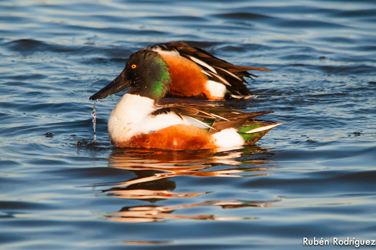Dabbling ducks have long been recognized as important vectors of dispersal for strictly aquatic plants. In terrestrial ecosystems they are widely assumed to be irrelevant. In this study we identified the plant species dispersed by seven duck species in Europe based on a comprehensive review of gut contents. 445 plant species from 189 genera and 57 families were identified. These plant species represent a wide range of wetland and terrestrial habitats, including almost the full range of site fertility, moisture and light conditions recorded for the European flora. They represent a wide range of dispersal syndromes, and most of these plants (62%) have not previously been considered as animal-dispersed in plant databases. Wetland plants make up only 40% of the dispersed species. Ducks feed opportunistically on a wide cross-section of plant species available across the landscapes they inhabit. Internal seed dispersal by dabbling ducks appears to be a major dispersal pathway for a far broader spectrum of plant species than previously considered. informacion[at]ebd.csic.es: Soons et al (2016) Seed dispersal by dabbling ducks: an overlooked dispersal pathway for a broad spectrum of plant species. J Ecol doi:10.1111/1365-2745.12531
http://onlinelibrary.wiley.com/doi/10.1111/1365-2745.12531/full

 Las altas temperaturas están provocando que las lagunas y las marismas de Doñana pierdan agua rápidamente
Las altas temperaturas están provocando que las lagunas y las marismas de Doñana pierdan agua rápidamente




